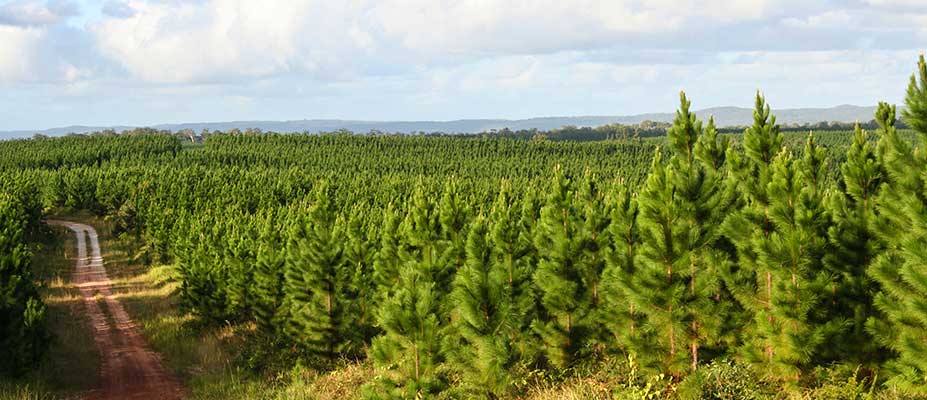

Southern Gippsland Agricultural Climate Resilience Project - Impact Research Study
An extensive impact research study reporting on the Southern Gippsland Agricultural Climate Resilience Project (ACRP) has been completed by CeRDI researchers. This research was undertaken to examine the outcomes from a two-year project implemented to support climate change adaptation across food producers in the Southern Gippsland region.
Background
The Southern Gippsland ACRP was developed as a local government partnership to build climate resilience across the food production community in Southern Gippsland.
An extensive impact research study reporting on the Southern Gippsland ACRP was completed by Dr Angela Murphy together with a team of researchers from CeRDI.
This research, which was commissioned by South Gippsland Council together with Bass Coast Council, was undertaken to examine the outcomes from a two-year project implemented to support climate change adaptation across food producers in the region.
The aim of the program was to improve resilience to climate risks through better decision making and effective action on the ground. A range of engagement, educational and information sharing activities were developed and offered to communities across the region. The program was funded by the Victorian Government’s Department of Energy, Environment and Climate Action (DEECA).
CeRDI’s role was to examine the implementation and uptake of the program across the region using wide ranging research methods that included surveys, interviews and an extensive review of program and secondary data (including post event evaluation responses completed by program participants). The researchers explored the approaches that were most effective in supporting the community and examined the extent to which project delivery aligned with the program aims that had been established.
Outcomes
Research participants were drawn from a range of food production sectors and from the community. Data analysis confirmed that the program had achieved a measure of success in building levels of awareness of climate change issues and providing strategies to enhance agricultural resilience among participants through engagement activities including place-based learning, partnerships, and network building. The range of educational topics and learning approaches were highly valued by program participants: information about agricultural diversity, managing weather and rainfall shifts, biosecurity, financial literacy, and soil health were considered topics of high importance by program participants.
The impact research also identified that diverse strategies for awareness building had contributed to the success of the project and developed the community’s engagement through the program. Farm visits, field experts and hands-on workshops were valued as methods for knowledge sharing. Through its events program, the project assisted in facilitating the building of successful and wide-ranging networks within the broader community. It was also found to assist in partnership development and partnership attainment across the region.
A number of recommendations were proposed to assist in the development of similar programs in the future. Researchers from CeRDI believe that the outcomes from this research will be valued by key project stakeholders and that the research learnings have the potential for broader dissemination to inform implementation of agricultural resilience projects in the future.
Innovation
- Measurement, over time, of the effectiveness and impact of diverse strategies to support the building of knowledge for building resilience in climate adaptation for food production. While a range of approaches have been introduced globally on this issue, this project provided a detailed mapping of strategies most likely to build resilience and engagement.
- The development and presentation of a strategic direction based on benchmarking climate change education and engagement approaches. This included insights into the role of technology in creating links and facilitating change.
- The building of a repository of evidence-based knowledge for building climate resilience within agricultural food production.
Approach
A qualitative research methodology, using mixed methods of data collection, was chosen to shape the study design, with a small number of key research questions driving data collection and analysis.
A range of data collection methods were used to collect data from the 428 program participants. Specific data was gathered through the mechanism of the data collection tools which captured data from 160 active program participants. These methods comprised:
- Literature review and document analysis. Project documentation was thematically analysed to identify synergies between project documentation and the aims and objectives of the ACRP. It was also used to support and validate data collected through the survey and the interviews.
- Online survey. A 15-minute online survey, where participation was by invitation, was used to examine involvement in the project and the impact of the project for key end users. Data from this survey was analysed using Excel and cross referenced with interview data, as appropriate.
- Events participation feedback. User feedback from across the series of events that were delivered by the ACRP was collated and analysed to provide insights into the nature of activities, attendees’ perceptions on the value of events and an external assessment of the ACRP.
- Individual interviews: Interviews were conducted with project participants, project staff and government representatives to gain individual and subjective insights into their perceptions of the project.
The impact research focused on the effectiveness of the following aspects of the Southern Gippsland ACRP:
- Place-based learning events;
- Mentoring and networking;
- Engagement and awareness building; and
- Partnership and mobilisation.
Future Directions
The insights gained through the project have the potential to be applied to other food production sectors and geographical locations to maximise effective and planned approaches to building engagement of food producers in enhancing climate resilience and building skills in climate adaptation.
-
RESEARCH OUTPUT
Murphy, A., Corbett, J., Ollerenshaw, A., Taylor, M. Agricultural Climate Resilience Project (ACRP): Impact Research Study. CeRDI Report.
-
PARTNERS
South Gippsland and Bass Coast Councils

These partners worked closely with the CeRDI research team to establish research parameters, to build communication with research participants and to provide advice and guidance in ensuring the research process was able to be implemented successfully.
Victorian Government Department of Energy, Environment and Climate Action

Victorian Government Department of Energy, Environment and Climate Action (DEECA) were the funding partners for the project and importantly, within the context of the research study, provided invaluable advice and feedback around the short- and long-term goals of government in working to build climate resilience. This partner also played a key role in providing a regional and policy context on specific climate resilience and adaptation issues.


